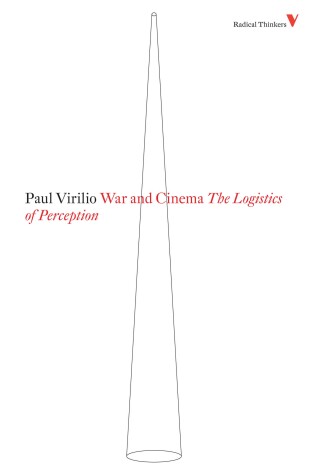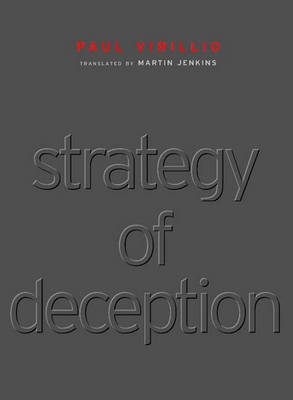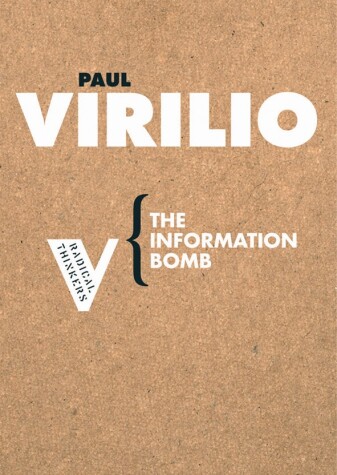Radical Thinkers
4 total works
Series 4
Reveals the convergence of perception and destruction in the parallel technologies of warfare and cinema.
Tearing aside the veil of hypocrisy in which the USA and its allies shrouded the Kosovo war, Paul Virilio here make a trenchant denunciation of its perpetration. With his characteristic flair, Virillo demonstrates that the nature of the bombing was set by strategic rather than ethical considerations. He sees, beneath the humanitarian rhetoric, a sinister innovation in the methods of waging war: territorial space is being replaced by orbital space in which a system of global telesurveillance is linked to the destructive power of bombers and missiles; governments, the military and the media are becoming part of a seamless and self-justifying process linked by new information and arms technologies. Passionate and political, Strategy of Deception is a vital examination not only of the war in Yugoslavia but also what Virillo calls our ""fin-de-siecle infantilization"" in which the reality of battle is reduced to flickering images on a screen.
"Civilization or the militarization of science?"
With this typically hyperbolic and provocative question as a starting point, Paul Virilio explores the dominion of techno-science, cyberwar and the new information technologies over our lives ... and deaths. After the era of the atomic bomb, Virilio posits an era of genetic and information bombs which replace the apocalyptic bang of nuclear death with the whimper of a subliminally reinforced eugenics. We are entering the age of euthanasia.
These exhilarating bulletins from the information war extend the range of Virilio's work. The Information Bomb spans everything from Fukuyama to Larry Flynt, the Sensation exhibition of New British Art to space travel, all seen through the optic of Virilio's trenchant and committed theoretical position.
With this typically hyperbolic and provocative question as a starting point, Paul Virilio explores the dominion of techno-science, cyberwar and the new information technologies over our lives ... and deaths. After the era of the atomic bomb, Virilio posits an era of genetic and information bombs which replace the apocalyptic bang of nuclear death with the whimper of a subliminally reinforced eugenics. We are entering the age of euthanasia.
These exhilarating bulletins from the information war extend the range of Virilio's work. The Information Bomb spans everything from Fukuyama to Larry Flynt, the Sensation exhibition of New British Art to space travel, all seen through the optic of Virilio's trenchant and committed theoretical position.
Set 3
“One day the day will come when the day will not come.” Bleak, but passionately political in its analysis of the social destruction wrought by modern technologies of communication and surveillance, Open Sky is Paul Virilio’s most far-reaching and radical book. Deepening and extending his earlier work, he explores the growing danger of what he calls a “generalized accident,” provoked by the breakdown of our collective and individual relation to time, space and movement in the context of global electronic media. But this is not merely a lucid and disturbing lament for the loss of real geographical spaces, distance, intimacy or democracy. Open Sky is also a call for revolt—against the insidious and accelerating manipulation of perception by the electronic media and repressive political power, against the tyranny of “real time,” and against the infantilism of cyberhype. Virilio makes a powerful case for a new ethics of perception, and a new ecology, one which will not only strive to protect the natural world from pollution and destruction, but will also combat the devastation of urban communities by proliferating technologies of control and virtuality.



